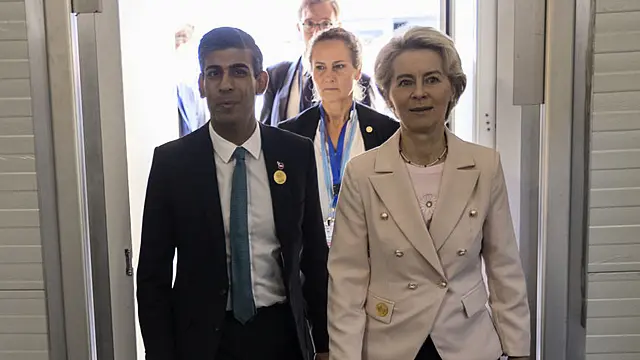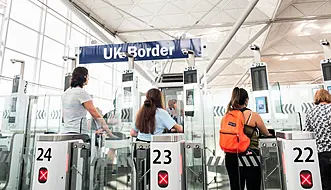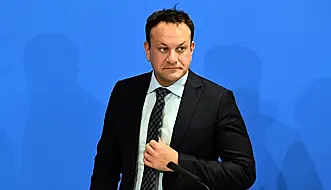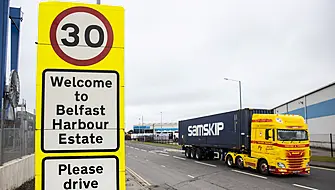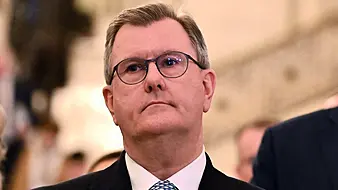Updated: 9.35am. Additional reporting by Vivienne Clarke.
European Commission president Ursula von der Leyen and British prime minister will announce a new Brexit deal for Northern Ireland on Monday if the two can agree final details during lunchtime talks in the UK.
The deal seeks to resolve tensions caused by the 2020 post-Brexit arrangements governing the North, but it remains to be seen whether it will go far enough to end political deadlock in Northern Ireland and satisfy British critics.
Ms Von der Leyen will travel to the UK for "late lunchtime" talks, after which Mr Sunak will convene a meeting of his cabinet. His office said if a deal had been reached, it would then be announced at a joint news conference and afterwards to the British parliament by Mr Sunak.
"The prime minister wants to ensure any deal fixes the practical problems on the ground, ensures trade flows freely within the whole of the UK, safeguards Northern Ireland’s place in our Union and returns sovereignty to the people of Northern Ireland," a statement from Mr Sunak's office said.
The prime minister is hoping that a successful negotiation will clear the way for him to focus voters' attention on domestic reforms as he seeks to overcome the opposition Labour Party's huge lead in opinion polls ahead of a national election expected in 2024.
The deal is expected to ease physical checks on goods flowing from Britain to Northern Ireland and give the North a say over the EU rules it has to implement under the complicated terms of the UK's exit from the bloc.
But, the overall success of any deal could hinge on whether it convinces the DUP to end its boycott of power-sharing institutions in the North.
Sovereignty concerns
As part of its exit agreement, the UK agreed to the Northern Ireland Protocol to avoid a hard border between the North and the Republic, instead effectively creating a border for some goods moving from Britain as Northern Ireland remained in the EU's single market for goods.
That also left Northern Ireland subject to some EU rules even though it was not a member of the bloc.
The DUP have said the protocol undermines Northern Ireland's place within the UK, and the party has withdrawn from power-sharing arrangements in protest over the protocol, vowing not to return until a solution is reached.
Without DUP support, Mr Sunak is also likely to face a rebellion from the eurosceptic wing of his Conservative Party, reviving the deep ideological divisions that have at times paralysed the British government since the country voted to leave the EU in 2016.
On Sunday, the head of the European Research group Mark Francois warned that trying to apply any deal without first seeking parliamentary approval would be unwise.
The British government has said parliament will have a chance to express itself, but has stopped short of explicitly promising a vote.
'Red lines'
Meanwhile, there are warnings coming from the North that a deal may be difficult if the DUP's Sammy Wilson stance becomes the bottom line.
The SLDP's Matthew O’Toole told RTÉ Radio's Morning Ireland programme that "if Sammy Wilson's red lines are the bottom line here, then I'm afraid it will be very difficult to make progress."
Mr O'Toole said none of his constituents had ever raised an issue with him over the involvement of the European Court of Justice (ECJ) in Northern Ireland, and added that the ECJ having jurisdiction over EU law was a fundamental part of the single market.
The ECJ had not been included in the DUP's 'Seven Tests', Mr O'Toole pointed out, and while he said he does not endorse the tests or the DUP's boycott tactics, he said he is concerned that the issue is now being inserted "post hoc" as a "red line".
"The truth is that there is a cohort, a section of hardline unionism that won't be satisfied by anything that comes out today, even if there's real measurable progress on a whole range of issues."
Unionists now have a decision to make about whether they are willing to accept what appeared to be significant progress in a range of areas and if they would be prepared to show leadership and go back into Stormont, "or whether they're going to default to the voices of the ultra hardline right and unionism," Mr O'Toole said.
This would be a really important decision for the people of Northern Ireland and people across the island of Ireland, he added.
"We can't simply default to the hardest line possible. People that voted for our party didn't want Brexit in the first place. Most people in Northern Ireland, a majority of people voted Remain.
"No one is getting everything they want out of this process and that's why we didn't want Brexit in the first place."
